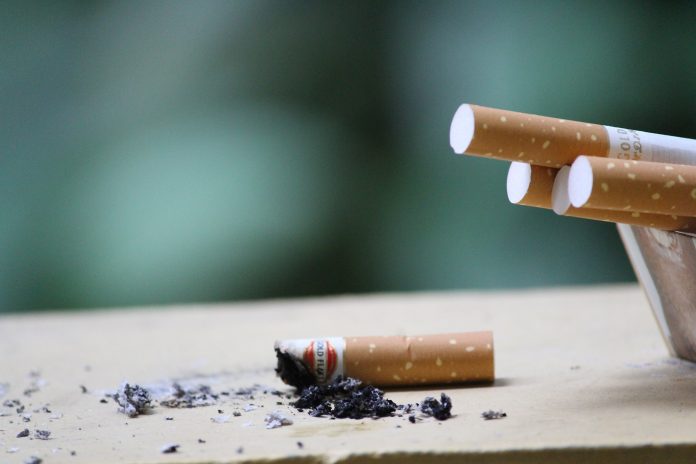
A collection of Saskatchewan health organizations is calling for stricter regulations, including the banning of flavoured tobacco and higher taxes on tobacco products.
The Saskatchewan Coalition for Tobacco reduction released a report with a list of policy recommendations Monday intended to reduce tobacco user and generate revenue for tobacco control enforcement and programs. The report was timed to coincide with national non-smoking week, which runs from January 20-26 this year.
“It has been nearly a decade since the Saskatchewan government updated its Tobacco Control Act. Since then new issues have emerged including the growth of flavoured tobacco products, the introduction of e-cigarettes/vaping products and the proliferation of hookah lounges (water pipe cafes),” the coalition said in a news release.
The report was backed by the Saskatchewan Medical Association, the Canadian Cancer Society and the Lung Association, among others.
According to the coalition, surveys show that Saskatchewan has the highest youth smoking rates in Canada. According to the latest data, released in 2017, 22 per cent of Saskatchewan youth aged 15-19 are smokers, as compared to eight per cent nationally.
The coalition said that tobacco use kills an estimated 1,500 people every year in Saskatchewan, and costs the economy more than $200 million annually in hospital visits, doctor visits and prescription drugs.
“Doctors have come to know all too well the harmful effects that smoking of all kinds – tobacco included – has on the health of our patients,” said Dr. Siva Karunakaran, president of the SMA.
“We see those negative effects every day, both the harm done to individuals and the cost borne by the health system to treat them.”
“Most other provinces, as well as the federal government, have modernized their tobacco laws to address issues such as vaping and flavoured tobacco,” added Donna Pasiechnik of the Canadian Cancer Society.
“Saskatchewan has not despite growing public support for these measures and repeated calls from health groups. Our high smoking results are the result of our government’s inaction.”
The new policy recommendations include:
Regulating the sale, promotion and use of vaping products
Banning flavours in all tobacco products
Banning smoking in more outdoor places including patios of bars and restaurants, playgrounds and sports fields as several municipalities have done
Banning the sale of tobacco products in more locations, including recreational facilities, bars and restaurants and university/college campuses
Banning all hookah smoking wherever smoking is banned in public places
Increasing the age to purchase tobacco and vaping products to 21, or at the very least 19
Other recommendations include policies that would generate revenue to pay for tobacco education and reduction programs. That includes increasing taxes on all tobacco products, requiring retailers to have a licence with an annual fee (as alcohol and cannabis retailers have) and a cost recovery fee on tobacco manufacturers/suppliers based on market share.
According to a chart shared by the coalition, Saskatchewan has the most relaxed tobacco regulations across Canada. Other provinces have regulations on flavoured tobacco, smoke-free places, bans on e-cigarettes or water pipes where smoking is banned and/or sales prohibitions in colleges, universities and recreational facilities. Saskatchewan doesn’t have any regulations in any of those categories, except when it comes to consumption of cannabis, which can only be done on private property.
Quebec, Ontario and Nova Scotia have the most restrictive legislation.
Individual municipalities have been implementing stronger smoking restrictions.
Prince Albert city council passed a new smoking bylaw last year after a contentious debate, banning all vaping and smoking from restaurant patios, all areas of Kinsmen Water Park and within nine metres of outdoor spectator areas, public playgrounds, skate parks, paddling pools or outdoor sports facility. It also banned smoking or vaping within nine metres from the main entrance of a building.
The city refused to enact a full smoking ban in public areas, despite pressure from the Lung Association of Saskatchewan, the provincial chapter of the Canadian Cancer Society (both members of the coalition for tobacco reduction) and some local families.
Other cities, such as Moose Jaw, Saskatoon and Regina banned smoking within city-owned, outdoor public areas.
Critics have said including vaping in the bans is counterproductive for those who want to quit smoking.
“It doesn’t make any sense to treat vaping like smoking, especially given the evidence that vaping is an effective harm reduction tool for those who are trying to quit. Treating vaping like smoking essentially targets residents who are trying to make healthier choices,” said David Clement, Toronto-based North American Affairs Manager at the Consumer Choice Centre wrote last August.
“Prince Albert’s high smoking rate is exactly why vaping shouldn’t be treated like smoking. Numerous public health agencies around the world have explained that smokers should be encouraged to make the switch. By-laws that treat vaping like smoking discourage residents from making the switch and undermine efforts to move people away from cigarettes.”

